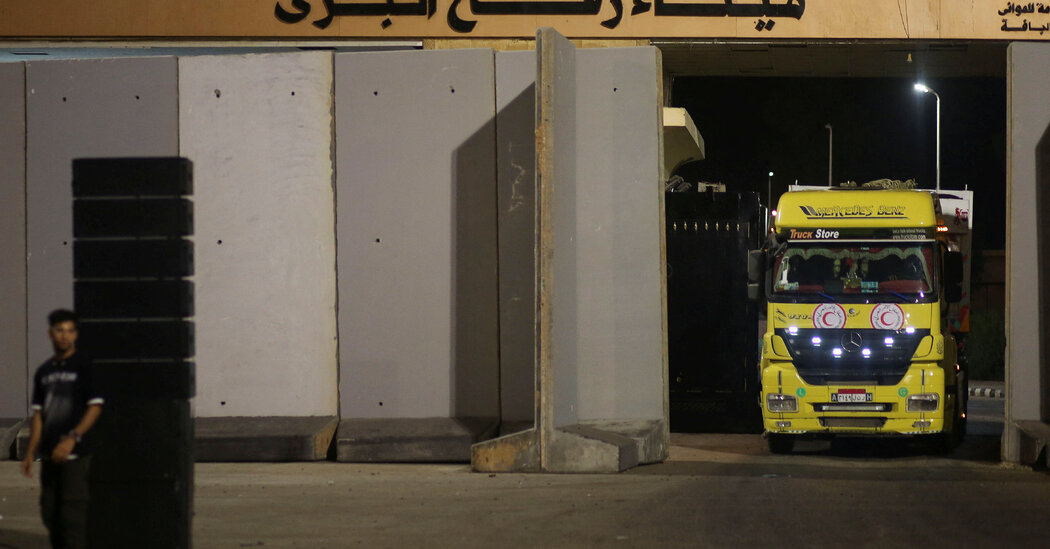The United Nations has warned that its fuel reserves in the Gaza Strip are running dangerously low, threatening the organization’s ability to deliver much-needed aid to the area’s 2.2 million people. As of Tuesday, the UN will no longer have enough fuel to operate forklifts and trucks for distributing aid, severely hindering humanitarian efforts in the region. In a press conference, Andrea De Domenico, head of the U.N. Office for the Coordination of Humanitarian Affairs for Palestinian territories, expressed concerns about the potential consequences of the fuel shortage, particularly for hospitals and critical infrastructure.
The U.N.’s main aid coordination agency for Palestinians, UNRWA, has been the primary facilitator of essential goods entering Gaza, where they are then distributed to those in need. However, fuel shortages resulting from Israeli blockades and restrictions are severely impacting these operations. The lack of fuel is not only affecting the U.N.’s ability to deliver aid, but it is also putting the lives of hundreds of patients at risk, as hospitals struggle to operate without power and fuel for generators. Al-Shifa hospital, in particular, has reported critical infrastructure damage and fatalities among patients due to the fuel crisis.
The situation is dire, and it is imperative that immediate action be taken to address the fuel crisis in Gaza to prevent further loss of life and suffering among the civilian population. As the U.N. grapples with dwindling fuel supplies and logistical challenges, the humanitarian situation in Gaza continues to worsen.
Las Naciones Unidas advirtieron que sus reservas de combustible en la Franja de Gaza se están agotando peligrosamente, amenazando la capacidad de la organización para entregar la ayuda tan necesaria a los 2.2 millones de habitantes de la zona. A partir del martes, la ONU ya no tendrá suficiente combustible para operar montacargas y camiones para distribuir la ayuda, lo que socavará gravemente los esfuerzos humanitarios en la región. En una conferencia de prensa, Andrea De Domenico, jefe de la Oficina de Coordinación de Asuntos Humanitarios de la ONU para los territorios palestinos, expresó preocupaciones sobre las posibles consecuencias de la escasez de combustible, especialmente para hospitales e infraestructura crítica.
La principal agencia de coordinación de ayuda de la ONU para los palestinos, UNRWA, ha sido la principal facilitadora de bienes esenciales que ingresan a Gaza, donde luego se distribuyen a aquellos que los necesitan. Sin embargo, la escasez de combustible resultante de los bloqueos y restricciones israelíes está afectando gravemente estas operaciones. La falta de combustible no solo está afectando la capacidad de la ONU para entregar ayuda, sino que también está poniendo en riesgo las vidas de cientos de pacientes, ya que los hospitales luchan por operar sin electricidad y combustible para los generadores. El hospital Al-Shifa, en particular, ha reportado daños en infraestructuras críticas y fatalidades entre los pacientes debido a la crisis de combustible.
La situación es grave y es imperativo que se tomen medidas inmediatas para abordar la crisis de combustible en Gaza y evitar una mayor pérdida de vidas y sufrimiento entre la población civil. Mientras la ONU lidia con el agotamiento de suministros de combustible y desafíos logísticos, la situación humanitaria en Gaza sigue empeorando.
